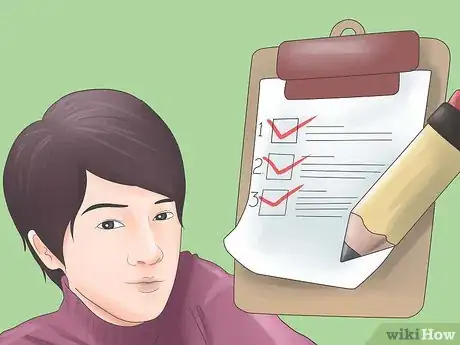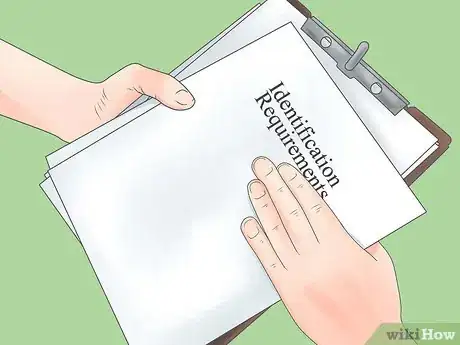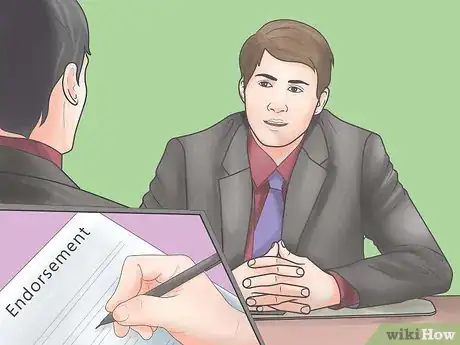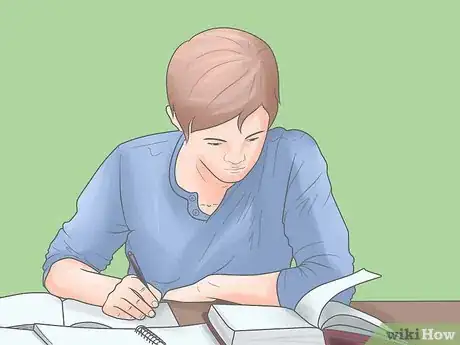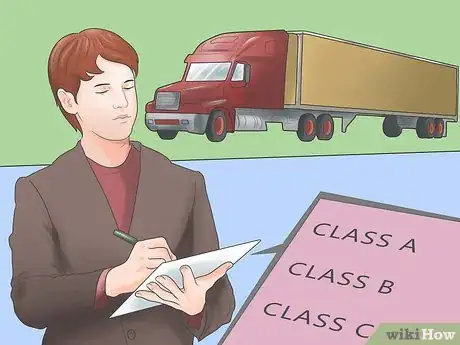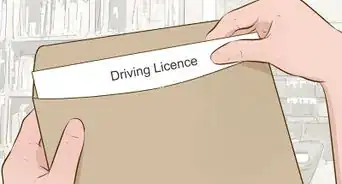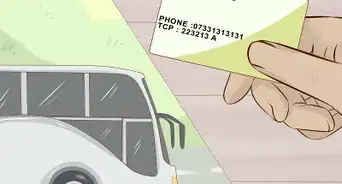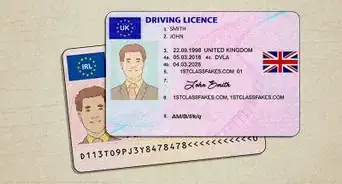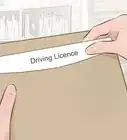X
wikiHow is a “wiki,” similar to Wikipedia, which means that many of our articles are co-written by multiple authors. To create this article, 16 people, some anonymous, worked to edit and improve it over time.
There are 8 references cited in this article, which can be found at the bottom of the page.
This article has been viewed 107,570 times.
Learn more...
People who drive specialized vehicles on streets and highways in America must carry a commercial driver license (CDL). To obtain a CDL, applicants must meet certain basic requirements and then pass physical, knowledge and road tests. If you want to know how to get a CDL license in New Jersey, follow these steps.
Steps
-
1Make sure you meet the minimum requirements to pursue a CDL in New Jersey. You must be at least 18 years of age, a resident of New Jersey, a US citizen or lawful permanent resident, and have a Class D New Jersey driver's license (probationary licenses are unacceptable).[1]
- You must be at least 21 years of age to drive outside of New Jersey (interstate commerce) and to apply for a Passenger or Hazmat endorsement.
- You must have at least 20/40 vision in each eye, with or without corrective lenses.
- You must be able to distinguish red, amber, and green.
- You must be deemed physically capable by a physician.
- You cannot have had your current license revoked, denied, or suspended, or cannot have had a conviction for driving a commercial vehicle while impaired over the past 2 years.
- You must pay the required fees for a New Jersey CDL.
- You must be legally present in the United States. Undocumented migrants are not eligible for a CDL (they can only apply for an automobile or motorcycle license).
-
2Produce the required identification materials. New Jersey's 6-Point ID Verification program ensures the identity of all CDL applicants. Applicants must show primary and secondary government-issued documents that, according to the New Jersey Motor Vehicle Commission, add up to 6 points.[2]
- Primary documents: Civil birth certificates and U.S. passports are worth 4 points toward achieving the ID requirement. Civil marriage certificates are 3 points.
- Secondary documents: Most other documents are worth 1 point. They include a current New Jersey Class D driver's license, a bank statement or signed AM card, and a utility bill that is less than90 days old.
- Payment: After supplying the necessary documents to the MVC, you will be required to pay a non-refundable permit fee. The fee covers background checks, processing and testing.
Advertisement -
3Apply for the required endorsements for the type of commercial vehicle you plan to drive. Endorsements are special qualifications that carry single-letter designations.[3]
- H: Hazardous materials. This requires specialized training and a placard stating that the vehicle is carrying dangerous cargo.
- L: For truck equipped with air brakes.
- N: Tank vehicles that transport large quantities of gas or liquids.
- P: Buses carrying passengers. This type requires a special road test and fingerprinting.
- S: For school bus drivers.
- T: Double- and triple-trailer vehicles.
-
4Prepare for the CDL tests you will have to pass before getting your license. The New Jersey CMV requires applicants to pass knowledge (written) and road tests before being licensed.
- Knowledge test: These tests cover rules and regulations commercial-vehicle drivers must understand.[4] Tests are administered at any Regional Service Center or Driver Testing Center, and often include a vision exam. No appointment is necessary. Brochures covering all test materials are available at the sites. A minimum score of 80 percent is required to pass the knowledge test.[5]
- Road test: Applicants must pass the knowledge and vision tests before making an appointment to take a road test. Road tests cover vehicle-inspection basics, driving under normal traffic conditions, and performing maneuvers that are required with the type of vehicle you plan to drive. Applicants must supply their own vehicle for the road test.[6]
-
5Determine the classification of the commercial vehicle you're planning to drive. Each class is for distinctly different types of vehicles.[7] To drive a Bus, you must have a passenger endorsement regardless if there are no passengers. To qualify for a passenger endorsement, you be at least 21 years of age and pass the passenger knowledge test.
- If you would like to drive a semi-trailer truck combination that involves towing a trailer more than 10,000 pounds, you will need a Class A.
- If you would like to drive a heavy single vehicle, such as a straight truck or bus more than 26,000 pounds, you will need a Class B.
- If you would like to drive a single vehicle up to 26,000 pounds to transport at least 16 passengers or hazardous materials, you will need a Class C.
Advertisement
Community Q&A
-
QuestionAfter passing the general knowledge test, and before the road test, can I take other endorsement tests?
 Community AnswerIn New Jersey, they normally give you the general knowledge test and endorsement tests at the same time. The computer will shut off each test once you pass it, so if there are 100 questions and you answer 80 percentof the questions right, it will shut off and the endorsements will begin.
Community AnswerIn New Jersey, they normally give you the general knowledge test and endorsement tests at the same time. The computer will shut off each test once you pass it, so if there are 100 questions and you answer 80 percentof the questions right, it will shut off and the endorsements will begin. -
QuestionCan I get a license after a felony conviction?
 Community AnswerYes, as long as the felony isn't vehicle or child related.
Community AnswerYes, as long as the felony isn't vehicle or child related. -
QuestionWhat does the K on the license stand for?
 Community AnswerIf you have a K restriction (CDL Intrastate Only), you are limited to driving in New York State only.
Community AnswerIf you have a K restriction (CDL Intrastate Only), you are limited to driving in New York State only.
Advertisement
References
- ↑ https://www.state.nj.us/mvc/drivertopics/gettingcdl.htm
- ↑ https://www.state.nj.us/mvc/license/6pointid.htm
- ↑ https://www.state.nj.us/mvc/drivertopics/cdlendorsements.htm
- ↑ https://www.state.nj.us/mvc/pdf/license/CDL_Manual.pdf
- ↑ https://www.state.nj.us/mvc/drivertopics/cdltest.htm
- ↑ https://www.state.nj.us/mvc/locations/agency_services.htm
- ↑ https://www.state.nj.us/mvc/drivertopics/cdl.htm
- ↑ https://www.state.nj.us/mvc/drivertopics/cdloutofstate.htm
- ↑ https://www.state.nj.us/mvc/drivertopics/gettingcdl.htm
About This Article
Advertisement
